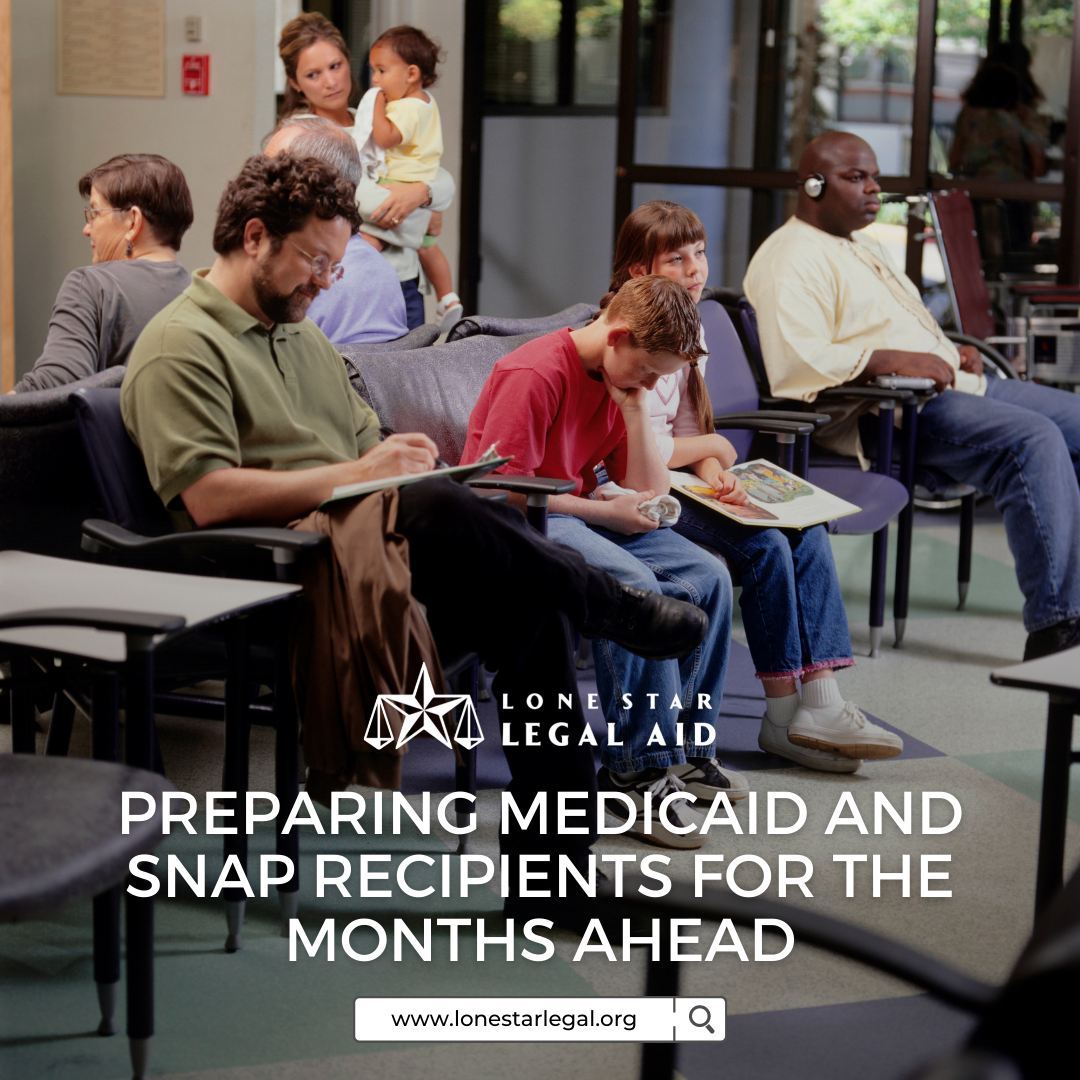Medicaid provides coverage to a vast population, including seniors, the disabled, pregnant women, children, and adults who are not disabled. Before the COVID-19 pandemic, states regularly reviewed benefit recipients’ eligibility based on their income, age, or disability status. To lessen the burdens on parents during the public health emergency, HHSC temporarily waived renewal requirements for Medicaid and SNAP clients.
While the waiver is still in effect, benefit recipients should get their paperwork in order, as the pandemic begins to slow its course. When the public health emergency officially ends, state Medicaid officials will reevaluate benefit recipients’ eligibility and connect with people whose jobs, income, and housing might have changed in the pandemic. People could lose their coverage if they earn too much or don’t provide the information their state needs to verify their income or residency.
How will this affect children?
Officials, groups, and organizations who work with people living in poverty worry that many low-income adults and children, who are typically at higher risk for health problems, will fall through the cracks and become uninsured. Being uninsured can limit access to medical care, especially for COVID-19 treatment, leaving parents with unexpected medical bills.
What can LSLA do?
- We will assist each applicant to complete an application and submit the application on their behalf.
- As a community partner with HHSC, we can track applications and verify enrollment of benefits.
- We will work with the client to submit any needed supplemental documents and meet any verification requirements. Once a client is enrolled, we will advise the client on maintaining enrollment and using their coverage.
- We will monitor term-end dates and upcoming recertification processes, and communicate with the client to ensure continued coverage until recertification is complete.
For individual assistance, contact us at 713-652-0077 ext. 8103. Let us know that you would like to talk to our team regarding Children’s Medicaid for your kids. One of our paralegals specializing in Children’s Medicaid & CHIP will talk to you to determine your eligibility for the programs.
***
Lone Star Legal Aid is a 501(c)(3) nonprofit law firm focused on advocacy for low-income and underserved populations. Lone Star Legal Aid serves millions of people at 125% of federal poverty guidelines that reside in 72 counties in the eastern and Gulf Coast regions of Texas, and 4 counties of Southwest Arkansas. Lone Star Legal Aid focuses its resources on maintaining, enhancing, and protecting income and economic stability; preserving housing; improving outcomes for children; establishing and sustaining family safety and stability, health and well‐being; and assisting populations with special vulnerabilities, like those with disabilities, or who are elderly, homeless, or have limited English language skills. To learn more about Lone Star Legal Aid, visit our website at www.lonestarlegal.org.
Media contact: media@lonestarlegal.org
